Dickinson College Farm’s anaerobic digester is 100% up and running! This innovative project is the result of over 5 years of planning and significant contributions from our supporters. We could not have made it across the finish line without the unique grants we received for this project. We thank our grant supporters below and provide a snapshot of what our final report to a grant-making foundation looks like for this project!
In alphabetical order:

Constellation Energy – General construction cost and engineering

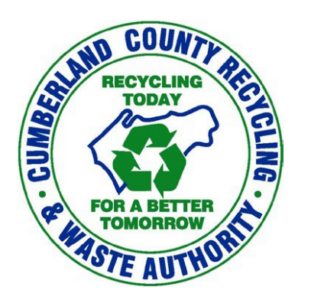
Cumberland County Conservation District & Recycling Bureau – Cattle heavy use area, liquid waste management system

Betty Richardson Churchill ’58 and her husband, Dan – Alumni Donation – High efficiency fans and general construction
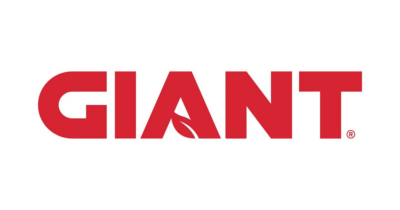
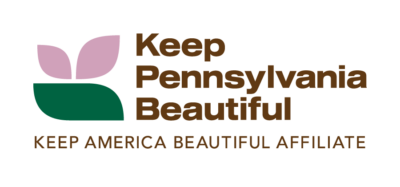
Giant Food Stores & Keep Pennsylvania Beautiful – Power shed and pipe fitting

High Tide Foundation – Anaerobic digester system
![]()
John Crain Kunkel Foundation – Site work, materials handling, digester pipefitting
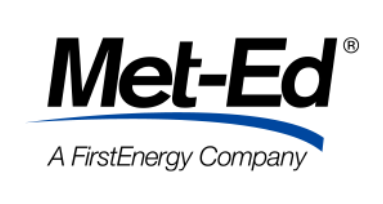
Met-Ed – Electrical engineering and wiring
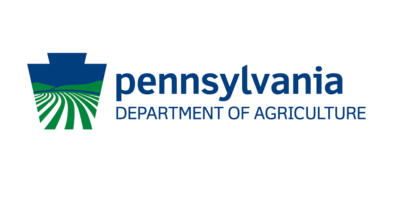
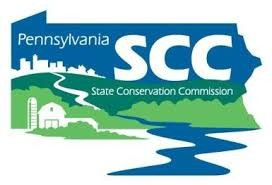
Pennsylvania Department of Agriculture and Pennsylvania State Conservation Commission – Manure storage, waste management system

Pennsylvania Department of Environmental Protection – Food waste grinder and conveyor

South Mountain Partnership – Education pavilion

United States Environmental Protection Agency: Supporting Anaerobic Digestion in Communities – Anaerobic digester system and food waste collection area

USDA Natural Resources Conservation Service – Anaerobic digester system and manure storage tank
Grant Report
Project Title: Community Waste to Energy – Small Farm Anaerobic Digestion and Education
The Dickinson College Farm, in partnership with Triple L Farm dairy, has constructed an anaerobic digester (biodigester) system for converting food waste and animal manure into renewable electricity and crop fertilizer in Cumberland County PA. Through the biological processes of microbial fermentation and methanogenesis, organic residues (community food waste and dairy manure) are processed into biogas, a renewable, combustible fuel that is used like natural gas. Our system includes a combined heat and power (co-gen) engine used to convert biogas to electricity for feeding the power grid. Biogas generators result in climate friendly power that is carbon neutral. We are thrilled to report that after fifteen months of construction, our completed biodigester system is functioning well. We have been converting dairy manure and food waste into burnable biogas since late June (2024). The co-gen engine was commissioned by project engineers the last week of July and we are now pushing renewable electricity into the utility grid. By August we expect to be generating enough renewable electricity to power the farm plus 20-30 homes in the Met Ed power grid. The partnership with Triple L Farm dairy is going well, the cattle are healthy, and all machinery is running as intended.
Biodigesters are not new technology, but in the US, they have been most commonly deployed on very large farms with 500 or more cows. However, the average sized dairy farm in Pennsylvania has only 100 cows. Our project makes use of newly developed engine technology to implement a biodigester shared between two small farms, with 100-150 cows plus 2-3 tons per day of community food waste. The newly developed Dickinson / Triple L Farm biodigester system provides a working model of a family farm-scaled energy system for public, youth, and farmer education, with the goal of stimulating further development of this technology in the Mid Atlantic in the coming years.
In our first year, we have already hosted several hundred visitors from the Carlisle PA region and far beyond through over forty public tours. We are “on the map” and have successfully spread the word through outreach partners, to the point that we now receive regular requests for tours from our target audiences – schools, farmer organizations, academics, and recycling professionals. Through a small grant from the South Mountain Partnership, we built an educational pavilion at the digester site that facilitates hosting of groups in all weather conditions. We have made good use of our experience and reputation as youth environmental educators as well as our connections in the mid-Atlantic farming community to reach a wide variety of visitors. Guests at the biodigester project have ranged from home school kindergarten groups to high school AP science classes; from 4H summer camp and a Future Farmers of America annual gathering to the Governor of Pennsylvania and Secretary of Agriculture. Farmers and researchers from numerous US states and 19 different countries have visited the project site in the past six months.
Our goal is to inspire further deployment of biodigesters in Pennsylvania and beyond. In addition to free public tours, in the first year of the project we presented the results of our project at several regional conferences in collaboration with the Center for Dairy Excellence, Penn State Extension, Pasa Sustainable Agriculture and the Professional Recyclers of Pennsylvania. The project was featured in a Penn State virtual field day and a variety of media from the National Center for Appropriate Technology.
MEASURABLE RESULTS:
One complete and functional state of the art biodigester system for dairy manure and food waste.
230,000 lbs of food waste diverted from landfills in the first project year.
1000+ people educated between tours, classroom visits, conference presentations and videos.
We provided educational content to six different schools and produced or were featured in at least four publicly available instructional videos. We also hosted one free public musical performance centered around the biodigester project.
A second success is in food waste diversion from landfills. To meet the energy goals of the biodigester system, we reached out to numerous local businesses to seek additional food waste beyond that generated by Dickinson College. We now have a food waste collection relationship with several restaurants, a brewery, commercial bakery, food bank, and schools. Other relationships in development include the Carlisle hospital system and a commercial fruit processor. In year 1 of the project, we diverted over 230,000 lbs of food waste from landfills into the farm’s composting system. This results in reduced greenhouse gas emissions while also conserving landfill space.
PROJECT BUDGET: Total project cost: $2,100,000.00 Grants and cost shares were secured from federal, state and foundation resources to complete the total project budget. Dickinson College out of pocket costs total over $450,000. We project the revenue generation of the project will be about $50,000 per year, resulting in a 9–10-year simple payback on the College’s investment. The educational value of the project increases daily.
Please reach out to Assistant Director of the College Farm & Energy Projects Manager Matt Steiman at steimanm@dickinson.edu, or farm@dickinson.edu with questions!
+++
PA Governor & Ag Secretary visit the project: https://youtu.be/GGhcGrRj_tc?si=fF1QbBSjSdKGE_Nu
National Center for Appropriate Technology Podcast: https://attra.ncat.org/episode-350-mid-scale-biodigester-with-matt-steiman-of-dickinson-college/
Energy Vision award winner October 2023. https://energy-vision.org/ev-newsletter/ev-honors-2023-clean-energy-leadership-awardees-at-october-gala/
